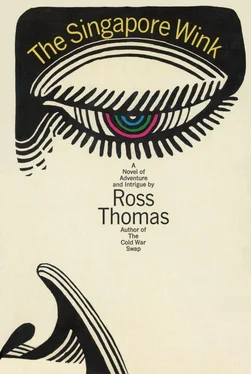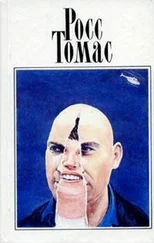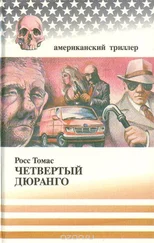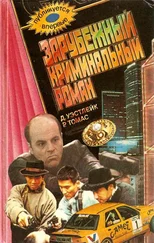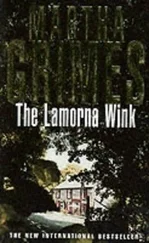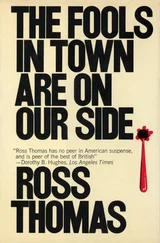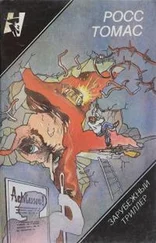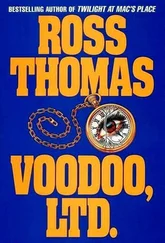“The tires and the tops obviously, but those can easily be replaced. I was hoping that we could drain the tanks, but they jumped the ignition on both cars and let them idle until the syrup had the opportunity to do its work. Syrup is worse than sugar, you know.”
“I didn’t,” I said.
“Bastards,” Sydney said.
“Take a look inside,” Trippet said.
“The upholstery?”
“Quite.”
I looked. A razor or a sharp knife had been used to slash the soft leather that covered the seats of both cars. Someone had taken his time. After neat vertical cuts had been made every two inches or so, they were followed by similarly spaced horizontal slits. It was as fine a job of professional vandalism as one could hope to see.
“What about the office?” I said.
“Nothing touched, nor was the Cadillac.”
“No, they wouldn’t touch the Cadillac.”
Trippet looked at me quizzically and then turned to Sydney. “Be a good chap and go fetch Jack and Ramón and push these into the back.”
Sydney shoved a long blond hank of hair from his eyes, glowered out at the street as if he expected to find the vandals with their noses pressed against the plate-glass windows, and then muttered something about what he was going to do when he caught up with the sons of bitches.
“We’ll help,” I told him. “But let’s get these two off the floor first They’re not very good advertising.”
Sydney headed for the back shop and Trippet said: “You don’t seem too surprised.”
“I think someone wanted to give me a message. Everything considered, they were more polite than I could expect.”
“Who?”
“I don’t know who did it,” I said, “but I probably know who ordered it done.”
“Friends of yours?”
“Newly found acquaintances. Let’s get a cup of coffee and I’ll tell you about it.”
We walked around the corner to a short-order cafe that afforded fairly good coffee and after the waitress had served us in a booth I told Trippet about Callese and Palmisano and who they were and what they wanted me to do.
“What they did to the Ford and the Jag was just a friendly nudge,” I said. “If I keep on saying no, they might blow up the place or burn it down or something equally unpleasant.”
“And if you still said no?”
“They could get more personal — maybe a broken arm or leg.”
“You wouldn’t be of much use to them then.”
“I wasn’t talking about my arm or leg, I was talking about yours.”
“Can’t say I fancy that.”
“No, I didn’t think you would.”
“I suppose we should ring up the police.”
“I suppose so,” I said.
Trippet poured a small container of cream or milk into his coffee and then reached for the one that belonged to me and poured that in, too. He added three teaspoons of sugar and then stirred it all up together.
“What would they do, take fingerprints?” he asked.
“I don’t know,” I said. “Probably ask around the neighborhood to see whether anyone noticed something unusual about three o’clock in the morning — such as somebody hacking away at the tires with a sharp knife.”
“Sounds rather useless,” Trippet said. “But we’ll have to call them so that the insurance people will be happy.”
“That’s true.” I sipped the coffee and it seemed better than usual. “I’ll probably be getting a visit or a call about three o’clock this afternoon from Callese. He’ll be wanting to know what I’ve decided.”
“What will you tell him?”
“No. Or do you have some other suggestion?”
Trippet leaned against the back of the booth and inspected his coffee spoon carefully. “I’m not unduly upset about the wanton destruction of our private property, Edward. That’s the risk that any entrepreneur takes who ventures into the commercial jungle.” He put the spoon down and looked at me steadily. “I don’t like it, of course, but I’m not outraged — as Sydney is. However, I will not be coerced.”
“Then you agree that I should say no?”
“Absolutely no.”
“Okay. When we go back to the office we’ll call the police and the insurance company.”
“I’ll take care of it,” he said.
“There’s one other thing you might do.”
“What?”
“Check to see whether our fire insurance premiums are paid up.”
The call came from Callese at 3:05 P.M. I remember writing the time down because I thought it might be important. I also took notes on the conversation. I needn’t have bothered; Callese didn’t have anything to say that I couldn’t remember.
“You can pick up your ticket at the United desk at the airport, Mr. Cauthorne,” he said by way of greeting. “The flight leaves at ten-fifteen tomorrow morning, first class, of course. There’ll also be an envelope with further instructions and some expense money.”
“I won’t be needing it.”
There was a brief pause, and then something that sounded like a sigh. Or perhaps it was just Callese exhaling smoke from one of his oval cigarettes. “My job is to get you to Washington to see a man,” he said. “You can say no in Washington.”
“I’ll say it here.”
“I must not be too good at persuasion.”
“You’re fine,” I said. “I found your message this morning. Very neat work.”
There was a pause and then he said, “I suppose now I’ll have to think up something that will persuade you.”
“Don’t bother,” I said and hung up.
I pushed a button under the desk that rang a klaxon horn in the shop. Trippet came in, dressed in his white siren suit with Les Voitures Anciennes stitched across its back in green Old English letters. Our crew of three wore similar ones. I think they even wore them on their dates.
“He called,” I said.
“And?”
“He said he was going to think up something that will persuade me.”
“Any notion of what it may be?”
“None.”
Trippet produced a box of Senior Service and offered me one. He always offered them and I always refused. He was extremely polite.
“I seriously doubt that he’ll try anything here tonight,” he said.
“Why?”
“The police. They said they’d keep an eye on us for the next few days.”
“They say anything else?”
“They wanted to know who did it — you know, perhaps a disgruntled customer. I, of course, told them that we had no disgruntled customers.”
When the police came I had been out to lunch with a prospective client, a man who owned a string of drive-ins that featured twenty-cent hamburgers. He was anxious for us to restore a 1933 Stutz DV-32 Bearcat that he had found in somebody’s garage in San Francisco. We passed one of his drive-ins on the way to lunch and I had a moment of apprehension when he slowed down, but it was only to check the volume of business. We ate at Scandia’s on Sunset and while we were waiting to be served he showed me some snapshots of the car. I looked at them, nodded politely, and handed them back.
“Can you do it?” he asked.
“Probably,” I said. “But we’ll have to see the car.”
“I’m having it trucked down next week.”
“If you like, we’ll look at it then.”
He nodded happily at that. “How long will it take?”
His name was Fred Cooper and he called his hamburgers Cooperburgers. I had yet to try one, but quite a few million other persons had, enough so that he could eat at Scandia’s and play around with old cars.
“That particular model had a straight eight engine with thirty-two valves,” I said. “It also had one of the best hydraulic brake systems ever built, plus automatic lubrication, and it retailed for about $5,000 in a year when very few people had that kind of money. The company went broke or folded in 1935. Parts are scarce. Very scarce.”
Читать дальше
